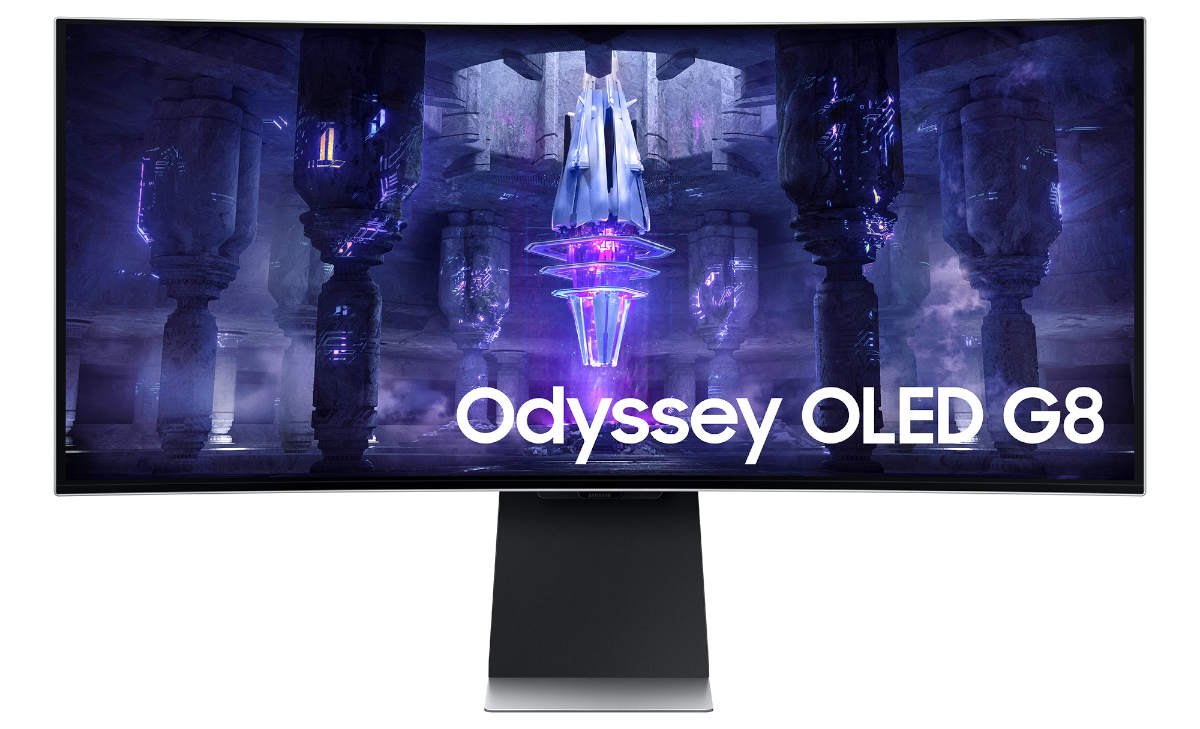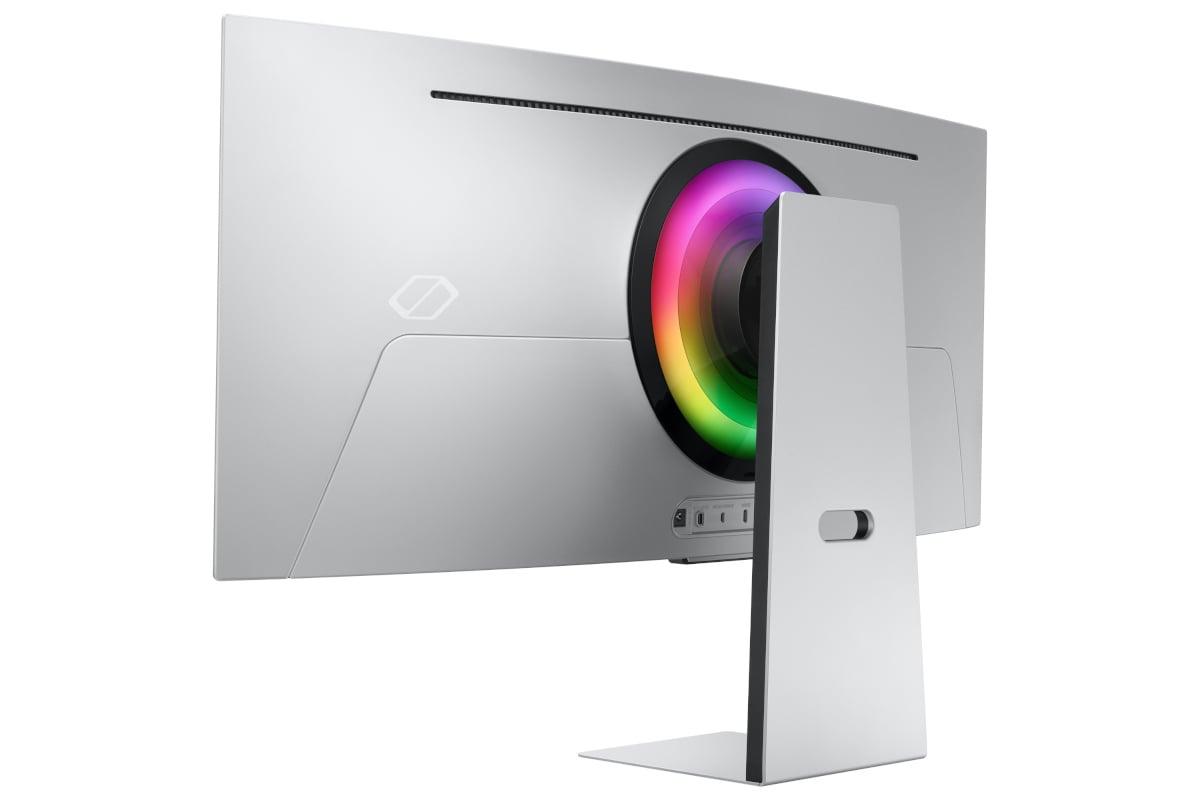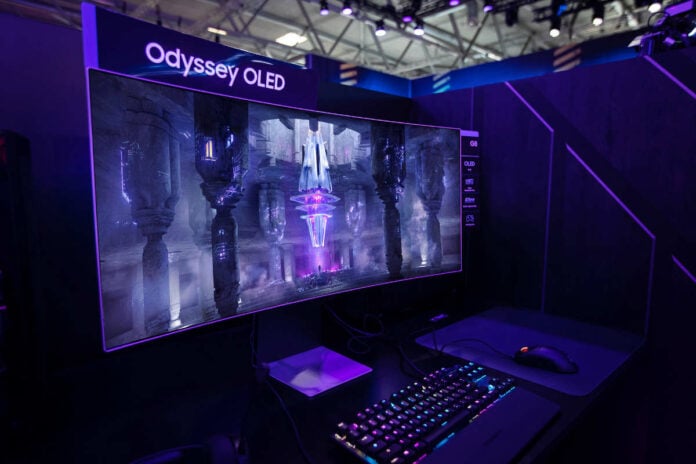Samsung’s Odyssey G8 OLED gaming monitor is finally on the horizon. A company first, the monitor boasts the latest and greatest QD-OLED technology and a few funky features designed to boost your gaming experience.
Kicking off with display specs, the G8 OLED boasts a 34in ultra-wide curved panel with a 3440×1440 resolution and a maximum refresh rate of 175Hz. As for variable refresh rate support, the display features AMD Freesync Premium, for tear- and stutter-free gaming. The rear features updated Core Lighting Plus RGB illumination and the entire frame and accompanying stand are made entirely of metal. Now that’s premium.

For colour correction aficionados, the screen covers 99.3 per cent of the DCI-P3 gamut and has a blazing-fast 0.1ms response time, including a DisplayHDR 400 True Black certification to boot. The subtle 1800R curve itself is relatively flat compared with its Odyssey G9 sibling, which touts a 1000R-curved display, but we happen to prefer it this way.
As far as I/O is concerned, there is HDMI 2.1 and DisplayPort 1.4 connectivity, though Samsung decided to go with micro and mini versions of those ports. We assume adapters will be included in the box, and overall versatility seems decent with USB-C, integrated 5W stereo speakers and a stand that supports both height and tilt adjustment.

Interestingly, Samsung Smart Hub comes built-in, enabling users access to the likes of Amazon Prime, Netflix and YouTube without the need to connect a PC, console or mobile device. Better still, Samsung’s Gaming Hub allows for access to a variety of game streaming service including Xbox Game Pass, Google Stadia, Nvidia GeForce Now and Amazon Luna, the latter exclusive to those who reside in the US.
Any alternatives? Yes, it seems that the newly refreshed G8 is set to compete directly against Alienware’s AW3423DW, and a spec-for-spec display comparison intimates it could be the same panel used in both models.
All that remains is pricing and availability. Samsung is yet to attach an MSRP, but a retail launch is penned for Q4 of this year, and if Alienware’s pricing is anything to go by, expect to pay at least $1,299.

